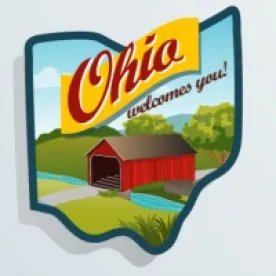On Sunday, March 22, 2020, Dr. Amy Acton, Director of the Ohio Department of Health, declared all workers in non-essential businesses across the state of Ohio are required to stay at home starting Monday, March 23 at 11:59 PM in order to combat the ongoing COVID-19 pandemic. This Order shall remain in effect until 11:59 PM on April 6, 2020, unless rescinded or modified at a sooner time and date. For purposes of the Order, covered businesses include any for-profit, non-profit, or educational entities.
All businesses and operations in the State, except those indicated below as Essential Businesses and Operations, are required to cease all activities within the State except Minimum Basic Operations. The Order defines Minimum Basic Operations as the minimum necessary activities to maintain the value of the business’s inventory, preserve the condition of the business’s physical plant and equipment, ensure security and to process payroll and employee benefits.
The Order clarifies that Essential Business or Operations which are not subject to the Order include:
1. Healthcare and Public Health Operations, including:
-
- hospitals
- clinics
- dental offices
- pharmacies
- public health entities
- pharmaceutical, pharmacy, medical device and equipment, and biotechnology companies
- organizations collecting blood, platelets, plasma, and other necessary materials
- licensed medical marijuana dispensaries and licensed medical marijuana cultivation centers
- obstetricians and gynecologists
- eye care centers (including those that sell glasses and contact lenses)
- home healthcare services providers
- mental health and substance use providers
- other healthcare facilities and suppliers and providers of any related and/or ancillary healthcare services
- entities that transport and dispose of medical materials and remains
- manufacturers, technicians, logistics and warehouse operations and distributors of medical equipment, personal protective equipment, medical gases, pharmaceuticals, blood and blood products, vaccines, testing materials, laboratory supplies, cleaning, sanitizing, disinfecting or sterilization supplies, and tissue and paper towel products
- veterinary care and all healthcare services provided to animals
2. Human Services Operations, including:
-
- any provider funded by the Ohio Department of Aging, Department of Developmental Disabilities, Department of Health, Department of Job and Family Services, Department of Medicaid, Department of Mental Health and Addiction Services, Opportunities for Ohioans with Disabilities, Department of Veteran Services, and Department of Youth Services
- long-term care facilities
- day care centers, day care homes, group day care homes
- residential settings and shelters for adults, seniors, children, and/or people with developmental disabilities, intellectual disabilities, substance use disorders, and/or mental illness
- transitional facilities
- home-based settings to provide services to individuals with physical, intellectual, and/or developmental disabilities, seniors, adults, and children
- field offices that provide and help to determine eligibility for basic needs
- developmental centers
- adoption agencies
- businesses that provide food, shelter, and social services, and other necessities of life for economically disadvantaged individuals, individuals with physical, intellectual, and/or developmental disabilities, or otherwise needy individuals
3. Essential Infrastructure, including:
-
- food production, distribution, fulfillment centers, storage facilities, marinas, and sale
- construction
- building management and maintenance
- airport operations
- operation and maintenance of utilities, including water, sewer and gas
- electrical (including power generation, distribution, and production of raw materials)
- distribution centers
- oil and biofuel refining
- roads, highways, railroads and public transportation
- ports
- cybersecurity operations
- flood control
- solid waste and recycling collection and removal
- internet, video and telecommunication systems
4. Essential Governmental Functions, including:
-
- first responders
- emergency management personnel
- emergency dispatchers
- legislators
- judges
- court personnel
- jurors and grand jurors
- law enforcement and corrections personnel
- hazardous materials responders
- child protection and child welfare personnel
- housing and shelter personnel
- military
- all services provided by the State or any municipality, township, county, political subdivision, board, commission or agency of government and needed to ensure continuing operation of the government agencies or provide for or support the health, safety and welfare of the public (including contractors)
5. US Department of Homeland Security, Cybersecurity & Infrastructure Security Agency (CISA) March 19, 2020 list of Essential Critical Infrastructure Workers
6. Stores that sell groceries and medicine
7. Food, beverage, and licensed marijuana production and agriculture
8. Organizations that provide charitable and social services
9. Religious entities
10. Media
11. First amendment protected speech
12. Gas stations and businesses needed for transportation
13. Financial and insurance institutions
-
- bank
- currency exchanges
- consumer lenders
- insurance companies
- underwriters
- agents
- brokers
14. Hardware and supply stores
15. Critical trades
16. Mail, post, shipping, logistics, delivery, and pick-up services
17. Educational institutions
18. Laundry services
19. Restaurants for consumption off-premises
20. Supplies to work from home
21. Supplies for Essential Businesses and Operations
22. Transportation
23. Home-based care and services
24. Residential facilities and shelters
25. Professional services
-
- legal services
- accounting services
- insurance services
- real estate services
26. Manufacture, distribution, and supply chain for critical products and industries
27. Critical labor union functions
28. Hotels and motels
29. Funeral services
The directive for Ohio businesses is rapidly changing and we will continue to report updates as they occur.




 />i
/>i

